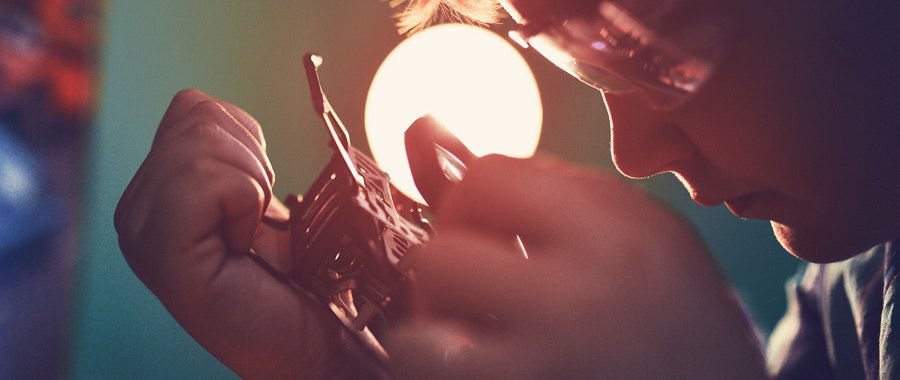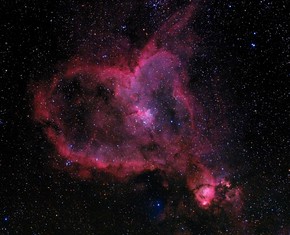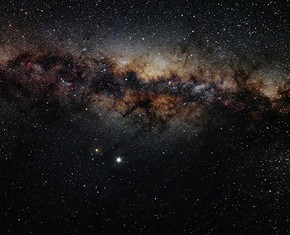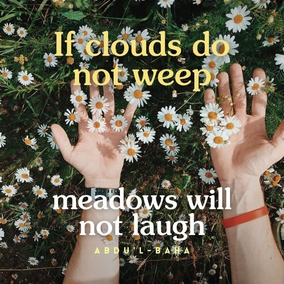The views expressed in our content reflect individual perspectives and do not represent the authoritative views of the Baha'i Faith.
Today World Science Day for Peace and Development honors Open Science – so let’s briefly examine it, and the closely-related field of Citizen Science, in light of the Baha’i teachings.
The Baha’i Faith, unique among religions because of its strong belief in and support of science, has often been called “the scientific religion.” Baha’is believe that “A religion which does not conform with the postulates of science is merely superstition.” – Abdu’l-Baha, Divine Philosophy, p. 82. For Baha’is, science and religion go hand in hand, and should exist in complete harmony with each other.
Open Science
Open Science has its roots in the emergence of modern science more than 300 years ago, along with the advent of scientific journals and views that the results of science should be shared. We now understand Open Science as:
… an approach to science in which all the products are released into the public domain so that any researcher can collaborate and contribute. This means that data, methods, processes and outputs are made freely available to the public, under terms that enable reuse, redistribution, reproduction and expansion of the research. The whole idea is that human knowledge is built on top of [itself]; thus, knowledge we acquire should be free and available to everyone. – C. Lieu, Darwin’s Ark Foundation
Currently, Open Science is a product of the digital age and modern telecommunications technologies – and reflects the tremendous importance of science in modern life. It also reflects the need for transparency in scientific activities, and its institutional support in light of the major role of public funding. Perhaps most importantly, Open Science addresses the need to bridge the considerable disparities between countries and world regions in the application of science.
UNESCO, which sponsors World Science Day every year, sees Open Science as having the:
… potential to significantly increase scientific collaboration and discovery …. It can be a game changer … particularly in Africa, developing countries, and Small Island Developing States.
Citizen Science
Closely related to Open Science, and likely necessary for its widespread implementation, is Citizen Science:
… the idea that anyone can contribute to science, not just those who are highly trained or hold PhDs in the field of study. Lay(wo)men – adults, teens, even children – can record observations, explore results and learn by analysis. Citizen science operates under the principle that given common context, tools and frameworks, data collection and results analysis can be done by anyone, anywhere who has the same tools. Citizen science propels research advancements in a way that cannot be otherwise achieved. – Ibid.
Citizen Science has been implemented in a number of different ways, sometimes with significant results. An excellent video introduction to some of these ways can be found in an October 16th 2019 webinar from the American Association for the Advancement of Science (AAAS) called Engaging citizen scientists: Will the walls of the ivory towers come tumbling down? (registration required).
An inspiring recent book – The Crowd and the Cosmos: Adventures in the Zooniverse – describes some of the excitement about these implementations. The Zooniverse, a very popular citizen science website, has involved more than a million people, taking advantage of the efforts and wisdom of its many participants to expand the reach of scientific investigation.
Citizen Science conducts many amazing activities. For example, one pioneering effort – the Galaxy Zoo started in 2007 by Chris Lintott, an astrophysicist at Oxford – has used the excitement and the capabilities of hundreds of thousands of volunteers to classify galaxies from a database of 900,000 images. Those involved have often contributed unique findings and asked important questions. More than 60 scientific papers have been published as a direct result.
Another fascinating Citizen Science project focuses on the environment: Drinkable Waters, developed in the Netherlands. This project uses the participation of citizen scientists to monitor and improve the health of rivers and their associated ecosystems around Europe and throughout the world. Here is a description of its citizen science activities this year:
You will measure the water quality of your river or stream near you. We will do this together throughout Europe from 17-24 October 2019. … You will look at the surrounding land and measure the temperature, colour, clarity, dissolved minerals, pH, nitrate- and phosphate levels and hardness of your river or stream.
France has developed attractive Citizen Science efforts at high government levels. An example, led by François Taddei of the Center for Research and Interdisciplinarity (CRI) in Paris, aims to create new educational institutes with an “open environment … where lifelong learning is at the heart of our society.” Another example, led by Olivier Le Gall and the French government’s Office for Research Integrity (OFIS), is preparing guidelines for programs throughout the country. OFIS has issued a very thorough and informative report – Citizen Science in France – that describes a roadmap for Citizen Science development. The English summary of that report provides those interested in the topic with an excellent resource.
Convergence with the Baha’i Teachings
The Open Science and Citizen Science movements have relevance for both Article 27 of the United Nations Universal Declaration of Human Rights and the Baha’ vision of a world civilization where:
… science and religion, the two most potent forces in human life, will be reconciled, will cooperate, and will harmoniously develop. – Shoghi Effendi, The World Order of Baha’u’llah, pp. 203-204.
Article 27 states that everyone the right to share the benefits of scientific advancement:
Everyone has the right freely to participate in the cultural life of the community, to enjoy the arts and to share in scientific advancement and its benefits.
The Baha’i teachings say that knowledge of science “… is as wings to man’s life, and a ladder for his ascent. Its acquisition is incumbent upon everyone.” – Tablets of Baha’u’llah, pp 51-52. They describe it in exalted terms:
The virtues of humanity are many, but science is the most noble of them all. The distinction which man enjoys above and beyond the station of the animal is due to this paramount virtue. It is a bestowal of God; it is not material; it is divine. Science is an effulgence of the Sun of Reality, the power of investigating and discovering the verities of the universe, the means by which man finds a pathway to God. – Abdu’l-Baha, The Promulgation of Universal Peace, p. 49.
The greatest benefit of science may well be knowing how to do it. The proverb says, “If you give a man a fish, you feed him for a day, but if you teach him to fish, you feed him, his family, and his community for a lifetime.” Similarly with science, if you give someone a cellphone, she can surf the internet. If you give her the ability to do science, she can benefit herself, her family, her community, and maybe even the entire world. Of course, some study science in school and then train in scientific and technical areas, but opportunities to do this are restricted to only a few around the world, and these few often then move to industrialized centers, taking their knowledge with them.
For the goal of widespread engagement with science, Open Science, and especially Citizen Science, have the potential to bring the benefits and the joys of science to wide numbers of people. It lets everyone learn by engaging in actual scientific research, probably the most effective of methods.
Citizen Science provides ways for interested Baha’is and their friends to become involved in actual science and, through experience, become trained in its methods. Communities can participate in Citizen Science projects in their neighborhoods or around the world, and even initiate such projects. Given the global dispersion of Baha’is, there might even be unique world-embracing scientific experiments that only Baha’is and their friends could do.
For these reasons, as well as the opportunities to learn science by doing it, please take some time to explore the opportunities Open Science and Citizen Science have created.
















Comments
Sign in or create an account
Continue with Googleor